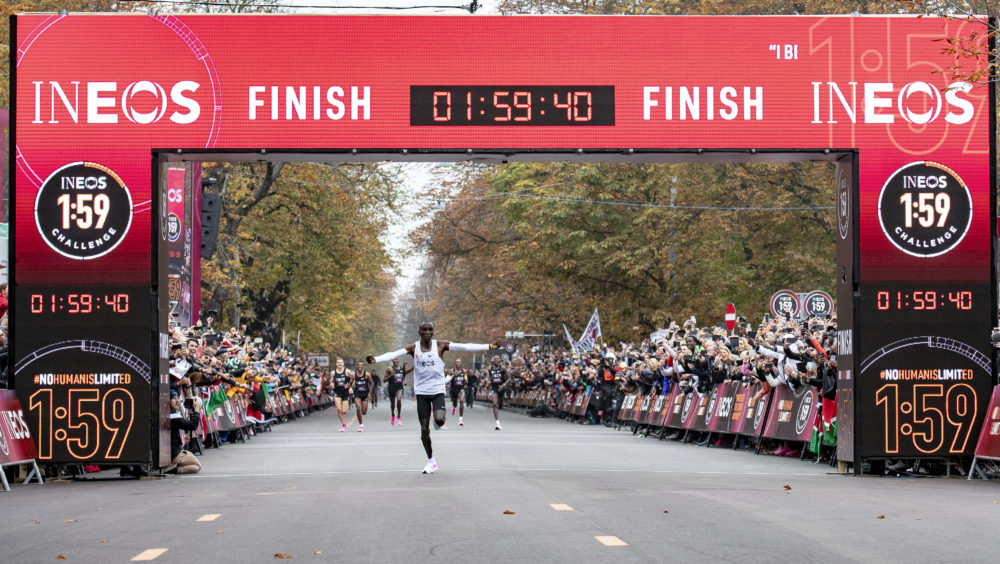It is now a cliché but 'whether we believe we can or we can not we're right'. This resonates clearly in a movie Kipchoge: The Last Milestone, is a documentary film about a Kenyan athlete named Eliud Kipchoge and the events leading up to the Ineos 1:59 Challenge that saw him breaking the two-hour mark for running the marathon distance
Kipchoge emphasized that once we lost our belief anything would be just impossible. I second that. Often during my run if I believed I am too tired to continue running that I would somehow feel more fatigue and decided to stop my run.
What Kipchoge did in beating the 2 hours challenge is not a stretch of imagination in terms of absolute difference of time. In Berlin Marathon 2018 he ran 2:01:39. Hence he need to beat his record by cutting his time by 1 minute 40 seconds.
To achieve this goal Kipchoge and his team employ science, technology and teams of pacemakers. He wore special shoe, had an electric timing car driving 4:34 per mile and with his flock of rotating pacesetters -35 on the course, six on reserve. Those pacemakers formed a protective, aerodynamic pocket around Kipchoge, five of them running in front in an open-V formation and two more in the back. They knew exactly where to run thanks to a pattern of thick, green laser beams projected onto the street by the timing car.
This achievement was not officially recognized as a world record because it was not run under normal race conditions. Some people would quick to criticize about the technological doping etc. But of course not anyone could just be able to run this fast wearing the same shoes and having all the helps that Kipchoge had.
Kipchoge himself doesn't mind of someday his record will be broken. That’s the nature of sports, he says. He recalls that the four-minute mile barrier went unchallenged until 1954.“I have shown at least that to run [a marathon] in under two hours, it’s possible,” he says. “They now know the way.”



No comments:
Post a Comment